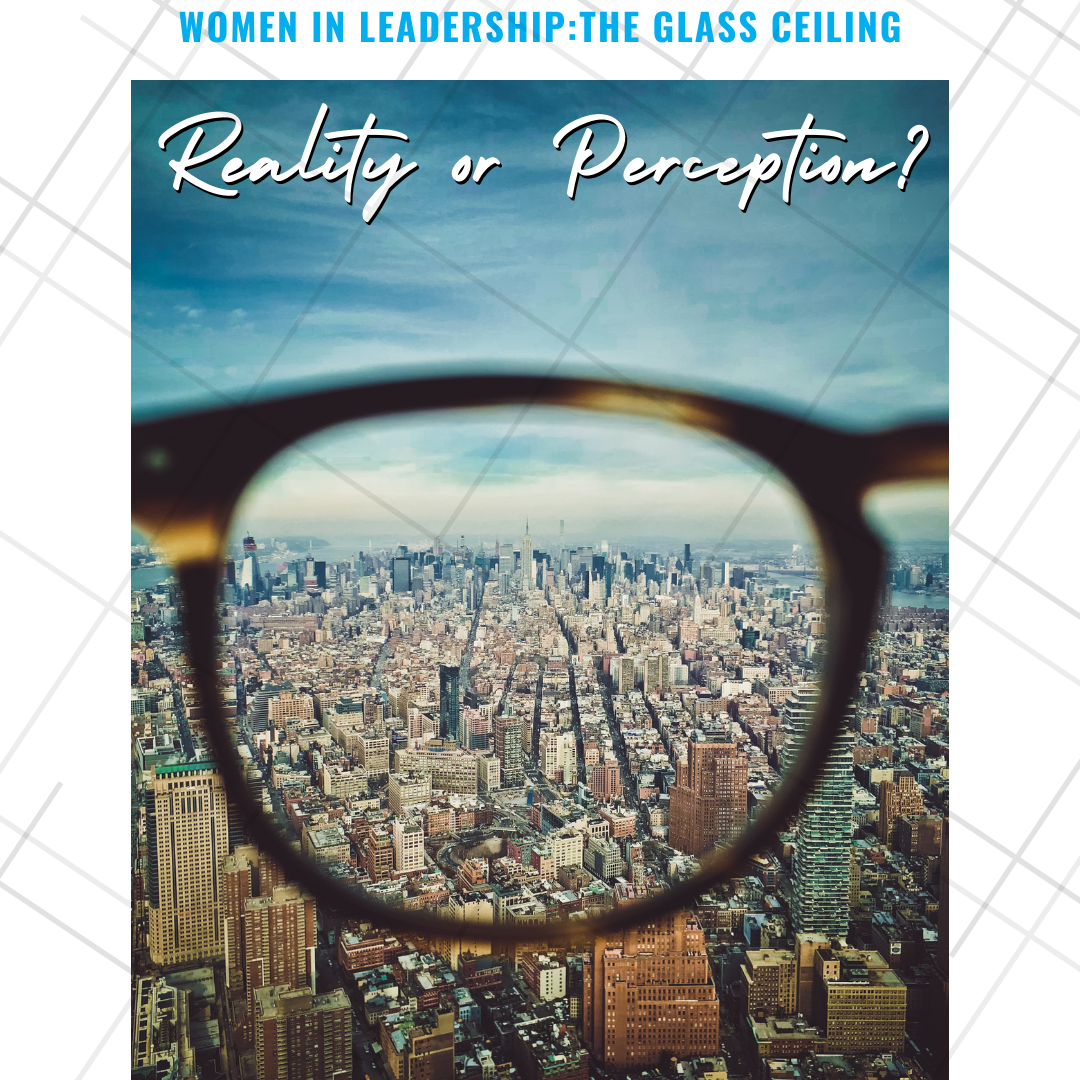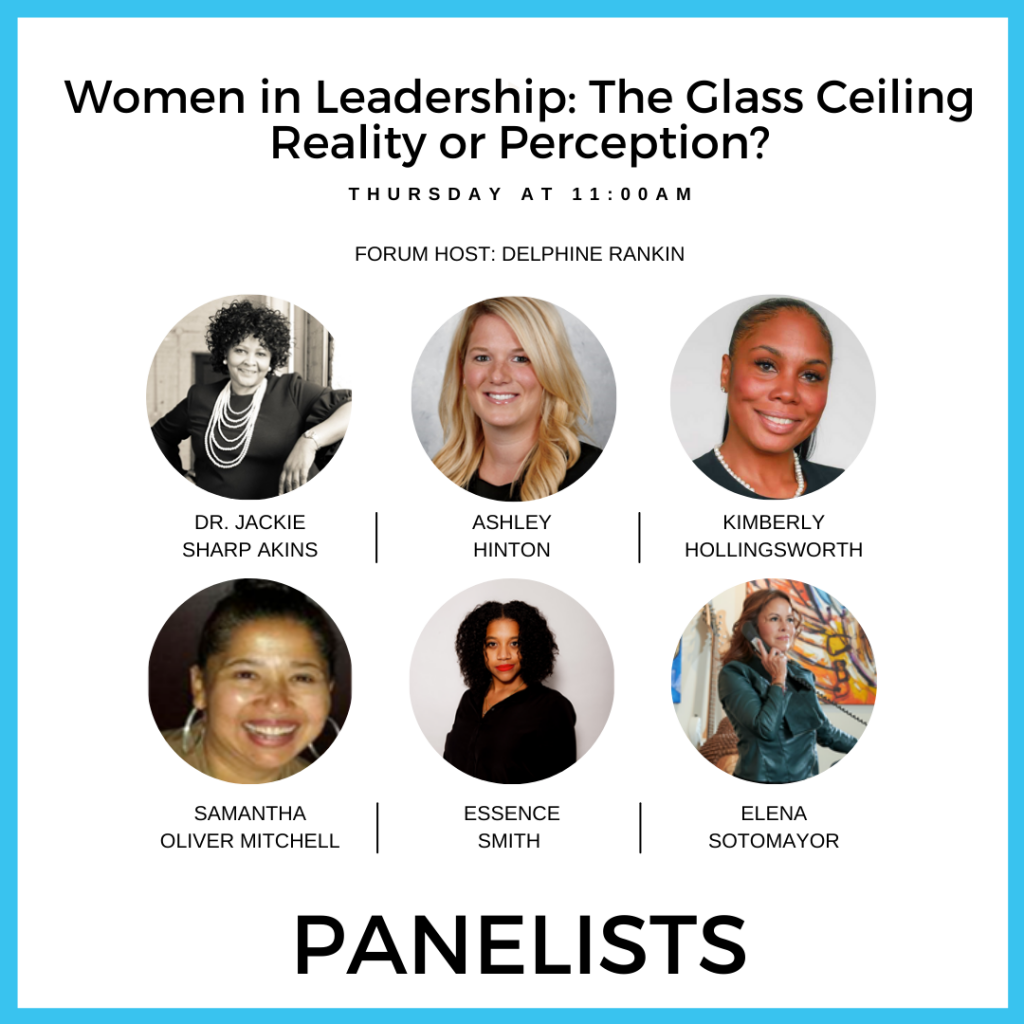March is National Women’s History Month, a great time to honor the women who have had and continue to have an enormous positive impact on society. This month, One Family Illinois’ Racial Justice Committee is proud to host its inaugural Women in Leadership Forum, called The Glass Ceiling: Reality or Perception?, a virtual event that will include guest panelists to discuss the reality or perceived “glass ceiling” within the workplace.
To read event highlights and veiw the entire panel discussion click here.
Women in Leadership Forum
The One Family Illinois’ Women in Leadership Forum is scheduled for Thursday, March 25 at 11 a.m. We are excited to share this 90-minute dialogue will feature five fascinating women who represent companies and businesses cross the State of Illinois. The goal of the Forum is to hear the journey of women into leadership, discuss the metaphoric “glass ceiling,” and consider strategies to improve opportunities for women. Click here to view and share the evite.
Featured Panelists:
- Jackie Sharp Akins, Chief Executive Officer, Lakeside Community Committee
- Ashley Hinton, Senior Director of Community Relations, Chicago Blackhawks
- Kimberly Hollingsworth, President, Olive-Harvey College
- Samantha Oliver Mitchell, Chief Operating Officer, TCA Health Inc.
- Essence Smith, Director of Operations and Communications, SocialWorks
- Elena Sotomayor, Executive Vice President of Sales, Cardenas Marketing Network
Forum Host:
- Delphine Rankin, Chief Operating Officer, One Family Illinois
We invite you to join us online for the free virtual webinar. Registration for this event is now closed.

About Women’s History Month
Women’s History Month had its origins as a national celebration when Congress authorized and requested the President to proclaim the week beginning March 7, 1982 as “Women’s History Week.” Throughout the next five years, Congress continued to pass joint resolutions designating a week in March as “Women’s History Week.” In 1987 after being petitioned by the National Women’s History Project, Congress designated the month of March 1987 as “Women’s History Month.” Between 1988 and 1994, Congress passed additional resolutions requesting and authorizing the President to proclaim March of each year as Women’s History Month. Since 1995, presidents have issued a series of annual proclamations designating the month of March as “Women’s History Month.” These proclamations celebrate the contributions women have made to the United States and recognize the specific achievements women have made over the course of American history in a variety of fields.
The Term “Glass Ceiling”
The glass ceiling is a metaphor referring to an invisible barrier that prevents women and minorities from being promoted to managerial and executive level positions within an organization. Coined in the 1970s, the phrase “glass ceiling” has been used to describe the difficulties faced by women when trying to move to higher roles in a male-dominated hierarchy. Today the term remains relevant to women in the workplace. Additionally, those who have accended to positions of power are then faced with what is known as the “glass cliff,” a woman assuming authority of a company or institution amdist a crisis.
A Crisis in the American Workforce
Investopedia in February shared that statistics show “at the end of 2020, women accounted for 55.9% of the labor force in the U.S. But when it came to chief executive positions, women held only 29.9% of these roles, and 88% of chief executives were White, according to the U.S. Bureau of Labor Statistics.”
These percentages may drop even lower in the coming years as a result of the disruption caused by the Covid-19 pandemic disrupted corporate America in ways never before. Although business is not operating as usual, Women in the Workplace shared that “women—especially mothers, senior-level women and Black women—have faced distinct challenges. One in four women are considering downshifting their careers or leaving the workforce due to Covid-19.” In the hopes the progress women have made within the workplace is not erased, we look to the leaders of corporations, businesses, government, and nonprofits to make decisions that allow increased flexibility as we move forward.
Women in the Workforce and Active in Child Welfare Nonprofits
Today, women make up more than 46 percent of the American workforce and nearly 75 percent of the nonprofit workforce. That’s reflected in the make-up of the One Family Illinois where women employees usually outnumber male employees, working tirelessly to build and strengthen its legacy: to build Villages that unite brothers and sisters in foster care, surround them with a community of hope, and help them grow into caring and productive adults.
Women as Foster Parents and Staff at One Family Illinois
From the first Foster Parent hired at One Family Illinois, Michele “Mickey” Haldeman, who provided care for more than 20 children, many of them from infancy to adulthood, women have played a major role at One Family Illinois.
Foster Parents are the very foundation of the One Family Illinois model and women make up more than 90 percent of the agency’s existing professional Foster Parents. Another Foster Parent who has been on the scene since the beginning is Sandra Marbeth, who has fostered 50 children at One Family Illinois Lockport Village and eventually adopted the first eight siblings who were placed in her care. Minnie Reed, who started as a traditional foster parent, joined One Family Illinois in 1994 and recently retired after 24 years of service providing stable, single-family homes for children in foster care.
Women also dominate the administrative, case management and clinical teams and serve as members of the board of directors. Many of these women also contribute in other ways. For example, board member Laurie Holmes has hosted a floral design workshop and supporter, Tarrah Cooper-Wright has participated in discussions with our Racial Justice Committee.
Join our Women in Building the Future of Foster Care
Help us celebrate the many contributions of women at One Family Illinois by keeping the momentum going to change the foster care system by becoming a Foster Parent, Relief Parent, staff member, or volunteer.

